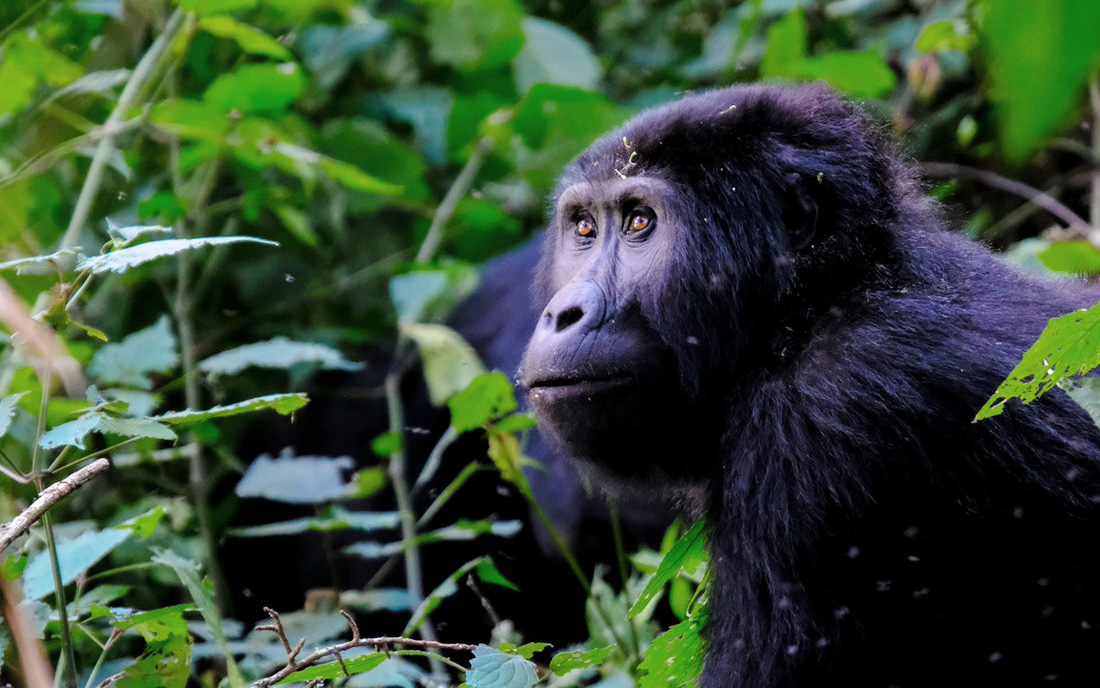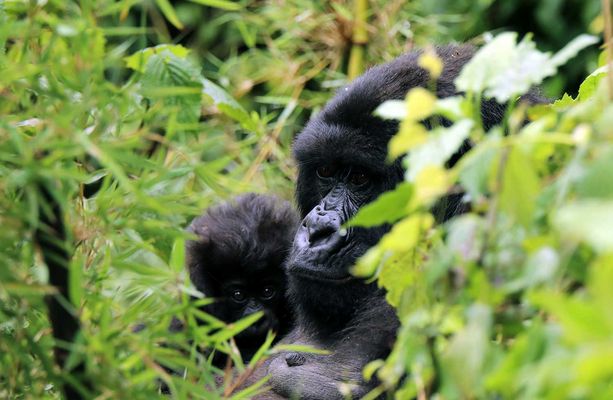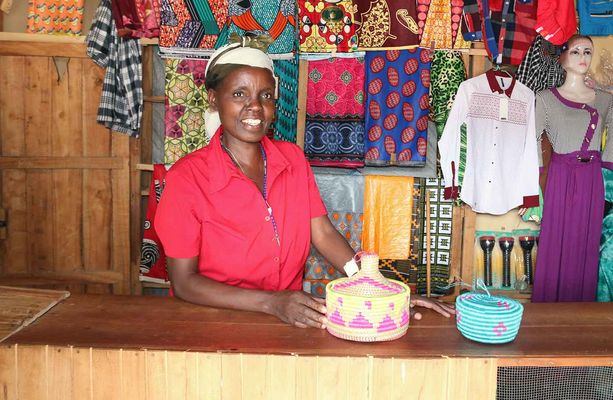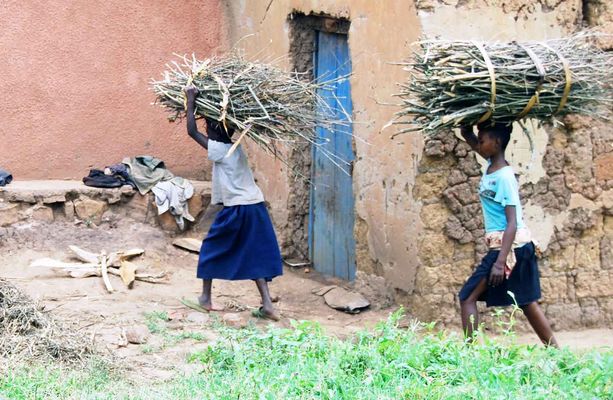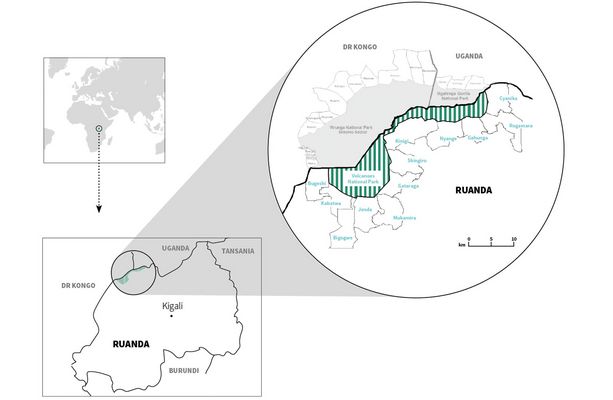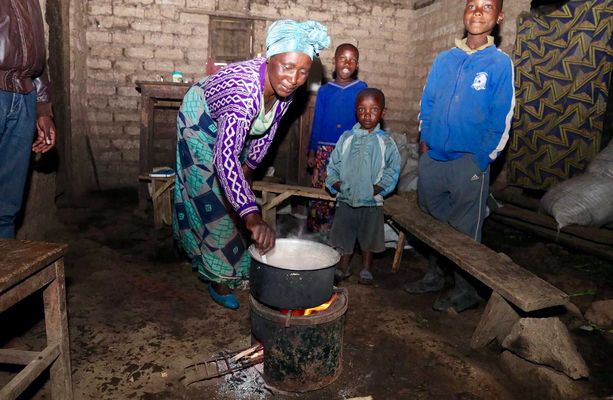Your Impact
Financing period: 06.11.2018 to 03.12.2018
With your help, we will support the myclimate mountain gorilla project as follows:
-
Financial
We support the project with a donation in the amount of the income that we generate through the sponsored search ads during the financing period. The associated climate protection effect is calculated by myclimate and attributed to Gexsi.
-
Network
The project marks the start of a cooperation with myclimate, as a result of which we want to support further projects – then with larger sums.
-
Media
Storytelling about the mountain gorilla project and the work of myclimate and its partners is planned as part of our regular media work.
Efficient stoves save habitat for mountain gorillas
The volcanic landscape of the Virunga mountain cloud forests in the triangle of Congo, Uganda and Rwanda is home to the mountain forest gorillas and other protected species such as the golden monkeys, which even occur exclusively there.
The myclimate project starts at the southern end of the border triangle, in Rwanda, the land of a thousand hills. Because Rwanda is the most densely populated country in Africa. The ever increasing consumption of wood by the growing population and the associated deforestation endangers the unique mountain cloud forests of the Virunga volcanoes in the Volcanoes National Park with their unique flora and fauna.
Since the project is being implemented specifically around the national park, not only the endangered habitat of the mountain gorillas – and lesser known species such as the golden monkey – is preserved, but also climate-damaging CO2 is bound, which otherwise enters the atmosphere through the burning of wood. By installing a total of up to 50,000 efficient stoves, the project aims to reduce the firewood requirements of families living around the national park by up to 70 percent.
The myclimate project partner Likano, together with the local population, has developed a locally producible, efficient cooker model that consumes more than two thirds less firewood than conventional open three-stone fireplaces. The project is also changing the lives of women and girls. They have to spend much less time or money to procure firewood – a job that is traditionally clearly in the hands of women. Also, thanks to more efficient combustion, they are less exposed to the harmful soot particles of open fires.
The cooking time is reduced by half with the efficient cooker. The families gain more than one hour a day for agriculture and other activities. Because everything has to be done in daylight: In the huts of most people around the national park there is no electricity for the lighting.
At the heart of the stove is a clay cylinder, which acts as a chimney for good combustion. Inside, a special insulating mixture of locally available clay and coffee bowl residues stores the heat. On the outside, a stable metal casing protects the stove and the high weight of over 20 kilograms is the basis for a long service life. The coffee bowls are purchased by the coffee farmers in the region and offer them an additional source of income.
This project sees itself as a supplement to the protective measures taken by the government and NGOs in favour of the rainforests. The money from the CO2 offset will be used for the local production of the stoves and for subsidised sales to households. Regular visits to families are the basis for optimal use.
Through the close partnership with the IGCP (International Gorilla Conservation Program), an annual focus is placed on the protection of mountain gorillas. This includes, for example, the training of rangers, awareness programmes or repair work on the stone wall which serves as a boundary for the Volcanoes National Park.
Who is behind it?
Founded in 2002 at the Swiss Federal Institute of Technology (ETH) in Zurich, myclimate is today one of the leading climate protection organisations that manages around 70 climate projects in 30 countries. The majority of these projects are financed through voluntary offsetting of CO2 emissions.
The foundation has a high-calibre advisory board (“patronage”), which includes Nobel Peace Prize winner Muhammad Yunus, the former general director of the WWF, Claude Martin, and Ernst Ulrich von Weizsäcker, founder of the renowned Wuppertal Institute for Climate, Environment and Energy.
Further information:
Why chosen
Pictures
Video
Your Feedback
How do you like the project? Give us feedback!


